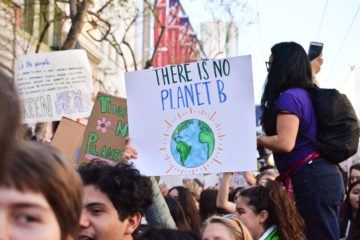Lawrence M. Krauss in Quillette:
 Recent White House initiatives suggest that addressing climate change has risen to the policy forefront of government at the presidential level for the first time in US history. Last week President Biden convened an online international meeting of heads of state on the issue and committed the US to a dramatic effort to reduce greenhouse gas emissions to a level of 50 percent of emissions in 2005 by the year 2030, which will require unprecedented action and cooperation between government and major industries.
Recent White House initiatives suggest that addressing climate change has risen to the policy forefront of government at the presidential level for the first time in US history. Last week President Biden convened an online international meeting of heads of state on the issue and committed the US to a dramatic effort to reduce greenhouse gas emissions to a level of 50 percent of emissions in 2005 by the year 2030, which will require unprecedented action and cooperation between government and major industries.
By and large, the public’s mood has shifted from one of skepticism to support, but because the issue is so deeply embedded in scientific predictions whose details are often absent in popular discussions, statements from prominent scientists have great potential to influence the debate.
As a theoretical physicist whose primary research has been in what is often called “fundamental physics” I am acutely aware that my colleagues can project an air of superiority in being dismissive of other disciplines and the scientists who labor in them. My late friend and colleague Freeman Dyson was an example. Freeman was one of the smartest physicists I have known, and we spoke at length on a few occasions about climate change. His views, while creative and novel, like almost all of his ideas, were nevertheless woefully uninformed. I suspect he felt that because he was smarter than climate scientists, he distrusted their work.
More here.
